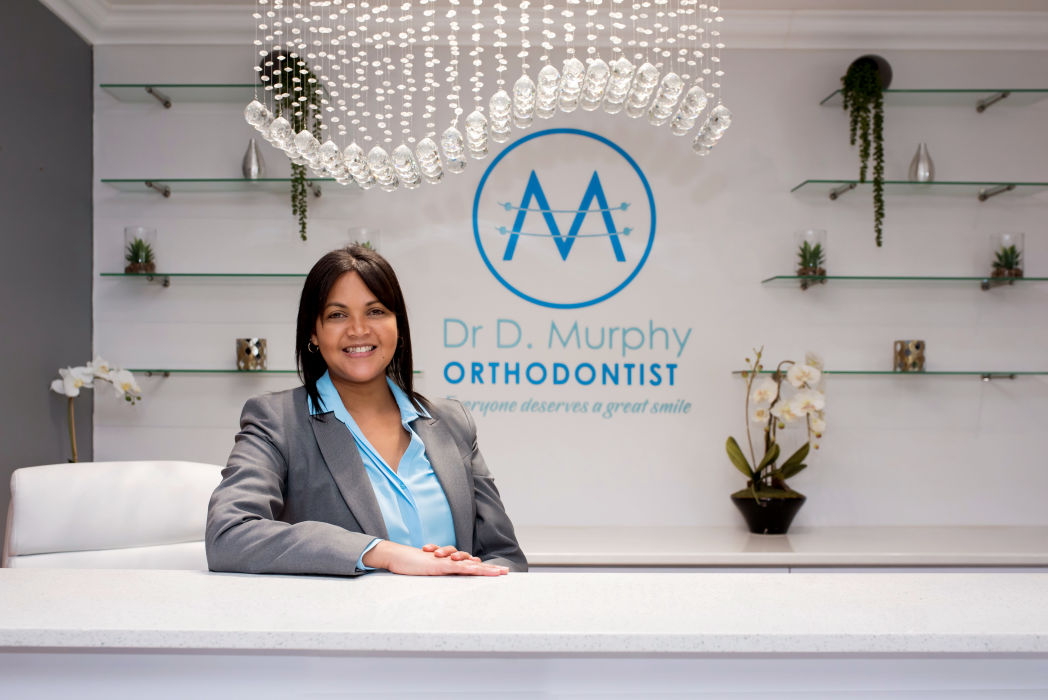

Treatment with braces usually takes between 6 - 24 months to complete depending on various factors such as severity of the case, number of appointments, breakages, etc.
There are 3 main reasons why you may need braces:
1) Aesthetics - improve how your teeth looks.
2) Improve the health of the teeth and the tissue around them.
3) To improve the function of the teeth - improve your bite.
Once your braces have been fitted, you will need regular appointments for it to be adjusted, usually every 4 - 6 weeks. Clear aligners can be done over a longer period.
Usually braces are fitted between 10 and 14 years of age, but there are cases where they are done before this. Adults who were not able to have them done as a child or who have seen their teeth move over time after having braces done previously, can also have them done in later years.
The cost of orthodontic treatment varies from case to case. There are various payment options available to make orthodontic treatment more accessible than it has ever been before. Orthodontic treatment is more acceptable to the general population than before as many people have realised the benefit of looking after their teeth and having a great smile. It is one of the best investments you can ever make.
Because teeth are moving through the bones in the jaw, sometimes orthodontics can cause some discomfort. We strive to make every appointment a relaxed experience. An information sheet is provided so if any discomfort is felt, the patient knows exactly what to do.

In some case the removal of permanent teeth may be necessary in order to achieve a good aesthetic and functional result. This is particularly necessary in cases where there is severe overcrowding of teeth. However, as orthodontic technology improves, the need for extractions may not always be necessary.
No it is not necessary to first see a dentist for a referral. Anyone can book an appointment with the orthodontist directly if you have concerns about the appearance of your teeth. See our booking tab on our home page to arrange an appointment with one of our practices.
This depends on the type of braces used, and the severity of the case. We have a payment plan as well as a once off payment method. Our administration staff will be able to give you a guide but for a comprehensive quote you will have to arrange an appointment with the Orthodontist for a consultation.
The duration of treatment depends on the severity of the individual case. Active treatment will last approximately 22 - 24 months. Preliminary and interceptive treatment, (usually phase 1 treatment for young patients), will be over a shorter period of time. This period is an estimated period, which will be affected by individual tissue response, the level of co-operation, damage to the appliance, missing of appointments, etc.
There are a variety of braces on the market. The ones most commonly known about are the metal and clear fixed braces which are attached to the teeth. They can be placed either on the front or the back of the teeth. Depending on the type of appliance, the brace can be made of stainless steel, ceramic (tooth coloured) and gold. Functional appliances are used in children to correct positions of the jaws are made of acrylic. Clear removable aligners that gradually move your teeth until they have straightened into their final position.
Yes, lingual braces (Incognito) are made of gold and are attached to the back of the tooth surface and cannot be seen. Clear braces (Invisalign) are sets of virtually invisible aligners that fit onto your teeth; there are no wires or brackets involved.
Usually, you should visit your Dentist twice a year, every six months. When you have braces, you are advised to see your dentist for a check up every 3-4 months. This will ensure that your teeth will be kept in a healthy state and you will not need expensive additional treatment once the braces are removed.
We recommend that the majority of patients see their Orthodontist every 4-6 weeks, however appointments are scheduled according to the individual’s needs, so can be more or less frequent as necessary.
Orthodontic emergencies, thankfully, are not that frequent nowadays. Minor problems can be addressed over the phone. Should your braces be causing discomfort or something breaks, please call our Practice for advice as soon as you can so that we are able to access the problem and advise you accordingly.
It is recommended that you brush your teeth at least twice a day while wearing braces. And it may be advisable to gargle (with water, mouthwash) after meals, or snacks to dislodge any lingering food. A detailed talk will be given to you on the day your braces are placed. You will be given an oral hygience pack which includes all the things necessary for you to maintain a good oral hygiene. We also have addition brushing and cleaning aids for your purchase at our practices. Feel free to enquire about these from our Oral Hygienists.
If you are wearing fixed braces, you should avoid hard food, such as raw vegetables, hard sweets, nuts, crusty bread and sticky foods such as chewing gum and toffee, as these can loosen the brace and damage the wires. If you wear removable clear aligners there are no dietary restrictions as they can be removed before eating and drinking. Tea, coffee, red wine and curry can stain aligners and elastics (on fixed appliances). If you remove your aligners for eating or drinking, remember to put them straight back in!
Yes, you can continue to play sports as normal. It is important to wear a mouth-guard for those sports where they are indicated. We recommend using an orthodontic mouth-guard when playing contact sports to protect the mouth from injury. These are available for purchase at our practices. These can be moulded as the teeth move during treatment. Once the braces are removed, a new mouth-guard could be made on request.
A retainer can be removable or fixed to the back of the teeth in order to keep the teeth in their final position after orthodontic treatment has been completed and the brace has been removed. Various types of retainers are available and it is important to have them fitted to prevent the teeth from moving back to their original position (relapse). We will explain more about this as you come to the end of your orthodontic treatment.
Feel free to visit these websites for more information about orthodontics:
SASO: South African Society of Orthodontists (saso.co.za)
BOS: British Orthodontic Society > BOS Homepage
No Code Website Builder